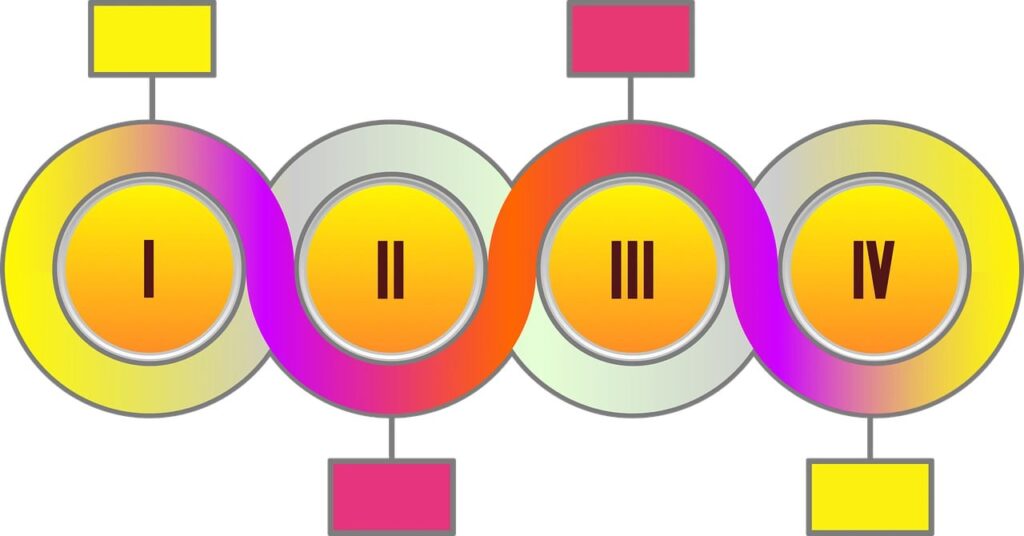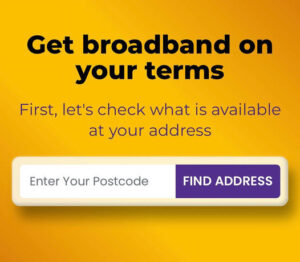How to Choose Broadband for Pensioners: Save Money with Expert Tips

Broadband for pensioners costs as little as £9.95 per month with social tariffs.
That’s real savings compared to standard packages. Social tariff packages range from £10 to £23 monthly, perfect for pensioners managing fixed incomes.
Major providers now offer packages designed with you in mind. BT gives you their Home Essentials – 67 Mbps speed for £20. Virgin Media offers ‘Essential Broadband’ at £12.50 monthly with 15 Mbps speed and no set-up fees.
If you receive pension credit ,BT Basic + Broadband offers a low-cost option for basic internet use. Do you want faster speeds for TV streaming or multiple users? You can upgrade to basic fiber for around £5 extra monthly.
Social tariffs give you affordable internet without sacrificing quality.
We’ll help you assess your needs, find the best deals, and apply for pensioner-specific packages that save you money every month.
You’re in control – we’ll show you how to get broadband on your terms.
Know Your Usage and Set Your Budget
Understanding your needs saves you money. No point paying for speeds you don’t need, or missing out on features you actually want.
How much internet do you really use?
Your online activities determine what you need. Think about your typical day:
- Basic Browsing & Emails: Check emails and browse websites? 20Mbps handles this easily.
- Occasional Streaming: Watch YouTube or the odd TV show? You’ll want around 40Mbps for smooth viewing.
- Regular Streaming & Video Calls: Video calls with family or HD streaming? Go for 67Mbps or higher.
Video calls eat data – a 30-minute HD video call might use up to 1GB. Music streaming adds up over time too.
What can you afford monthly?
Fixed income? We understand. Look at both monthly costs and any upfront fees.
Check what you spend on communications now. Set a monthly budget that fits comfortably. Then find packages that meet your needs without breaking that budget.
Simple as that.
Do you need a landline with your broadband?
Many pensioners still use landlines daily. Bundled packages often give better value.
Ask yourself – do you make regular calls? Landline service with inclusive call plans keeps bills predictable and often costs less than paying per call.
Don’t use your landline much? Broadband-only deals work fine.
The choice is yours – pick what suits how you actually communicate.
Choose Your Perfect Broadband Package

Image Source: https://pixabay.com/
Which broadband package suits your lifestyle? Getting the right connection means understanding what you actually need, not what providers want to sell you.
Standard vs fiber broadband explained
What’s the difference between standard and fiber broadband? Standard broadband (ADSL) runs through copper telephone lines, giving you speeds around 11Mbps. Perfect if you mainly browse websites and check emails.
Fiber broadband works differently. Standard fiber (FTTC) uses fiber cables to your street, then copper to your home – speeds up to 67Mbps. Full fiber (FTTP) runs fiber cables all the way to your property, delivering speeds over 900Mbps.
Most pensioners don’t need gaming speeds or multiple streaming devices running. Standard fiber broadband gives you what you need without paying for extras.
BT phone and broadband deals for pensioners
BT offers Home Essentials designed specifically for pensioners on Pension Credit (Guarantee Credit). You get reliable cheap broadband for pensioners plus optional home phone service at reduced rates.
Here’s what makes BT Home Essentials different: no early exit fees, cancel anytime. BT checks if you still qualify again at month 11 – stay eligible, keep your discounted rate.
Are bundled services worth it?
Landline and broadband deals for pensioners combine broadband with landline or TV. You save money compared to separate services. One bill instead of multiple payments keeps things simple.
But do you need everything in the bundle? Over five million homes pay for landlines they never use. If you stick to mobile or WhatsApp calls, why pay for technology you don’t need?
How to avoid paying for extras you don’t need
Watch out for sneaky add-ons. Providers slip extra services into packages. Free trials turn into monthly charges unless you cancel.
Protect yourself:
- Read terms carefully before signing
- Untick unwanted add-ons, even “free” trials
- Note when trials expire
- Check bills for surprise charges
These unwanted extras can cost you £94 extra per year. Don’t let providers decide what you need – you’re in control of your broadband choices.
Social Tariffs – Save Hundreds on Your Broadband Bills
Social tariffs offer real money-saving opportunities that many pensioners don’t know about. These special discounted packages could save you hundreds yearly with a broadband bill reduction for pensioners.
Your cheapest broadband options
Social tariffs are cheaper internet plans for people that get specific benefits, like Pension Credit. These affordable plans cost between £10 and £23 per month – substantial savings compared to standard packages.
Virgin Media’s ‘Essential Broadband’ gives you 15Mbps speed for £12.50 monthly with no setup fees. If you want faster speeds, BT’s Home Essentials provides 67Mbps for £20. Vodafone offers their Fiber 2 Essential package at £20 monthly on a 12-month contract.
Do you qualify for social tariffs?
You or someone in your home needs to get certain benefits. For pensioners, Pension Credit (Guarantee Credit) is the main requirement.
Additional qualifying benefits include:
- Income Support
- Employment and Support Allowance (income-related)
- Universal Credit
Vodafone accepts Personal Independence Payment, Disability Allowance, and Reduced Earnings Allowance. Community Fiber offers options without requiring benefit proof.
Providers offering cheapest broadband for pensioners

BT Home Essentials – Perfect for pensioners on Pension Credit, includes broadband and phone services at reduced rates.
Virgin Media – Essential Broadband (15Mbps) at £12.50 or faster Broadband Plus at £20 monthly, both with 30-day rolling contracts.
Sky – Social tariff costs £20 monthly for 36Mbps speed on 24-month contract.
Apply in 3 simple steps
Applying for social tariffs is straightforward:
Step 1: Check your current provider – Many offer social tariffs, switching within the same company is fastest.
Step 2: Gather your details – You’ll need full name, date of birth, and National Insurance number. Providers check if you qualify with the Department for Work and Pensions directly. You do not need to show any benefit documents.
Step 3: Complete application – Apply online or by phone. After quick verification, your provider arranges your new service.
Ready to start saving? Check what social tariffs your current provider offers.
Getting Set Up – Installation, Support & Staying Safe
You’ve chosen your broadband deal. What happens next?
We’ll walk you through installation, show you where to get help, and keep you safe online.
Your installation – what to expect
Your provider contacts you to arrange installation. Simple as that.
On the day, an engineer calls ahead to confirm arrival time. They’ll discuss the best route for cables and may drill holes to bring fiber into your home.
Someone over 18 needs to be present throughout. If you are renting, get landlord permission first.
Prefer DIY installation? Customer service reps guide you through it over the phone. Usually just means connecting your router on activation day.
Customer service that works for you
Phone support remains the top choice for older adults. More than 63% of individuals born before 1960 prefer phone contact. For those born before 1944? This figure jumps to over 90%.
Quality service includes follow-up emails that recap your phone calls. This is helpful for people with hearing problems. Look for staff who skip the technical jargon.
It is worth checking your provider’s customer service reputation before you commit.
Stay safe online
Protect yourself with these simple steps:
- Create strong passwords (16+ characters) and use a password manager
- Stay cautious with unexpected email links, texts and social media attachments
- Ignore dubious phone calls – stay calm if you answer suspicious calls
- Set up privacy settings on devices instead of accepting defaults
Need help learning digital skills?
Free support is widely available just for pensioners.
AbilityNet offers help through 450+ DBS-checked tech volunteers who assist in-person or remotely. They help with device setup, internet connection, and troubleshooting.
Age UK runs digital skills sessions covering basic device usage to online banking and shopping.
Ready to get help? Contact AbilityNet at 0300 180 0028 or Age UK at 0800 678 1602.
Ready to save money on broadband?
Finding the right broadband service doesn’t need to be overwhelming. We have explained how social tariffs can help you save money and give you steady internet access.
Know your usage patterns. Basic browsing needs minimal speeds. Video calls with family? You need faster connections. Set a realistic budget – pay for what you actually need.
BT Home Essentials and Virgin Media’s Essential Broadband stand out as particularly affordable options if you receive Pension Credit. These social tariffs reduce your monthly bills to £10-£23, compared to standard packages costing much more.
The application process is straightforward. Most providers check whether you qualify directly through the Department for Work and Pensions. You can quickly transition to a more affordable plan.
Stay safe online. Use strong passwords and be wary of unexpected messages. Set your privacy settings correctly to keep yourself safe. AbilityNet and Age UK provide valuable support if you need help.
Don’t just choose the cheapest package. Compare options based on your specific needs. The best broadband deal is one you can afford with good speed, dependable customer service, and the features you need.
Your goal should be internet service that enhances your daily life without straining your budget.
We’ve given you the tools to get broadband on your terms – affordable, reliable, and tailored to your requirements.
Ready to start saving? Check your eligibility today.



